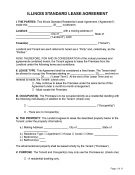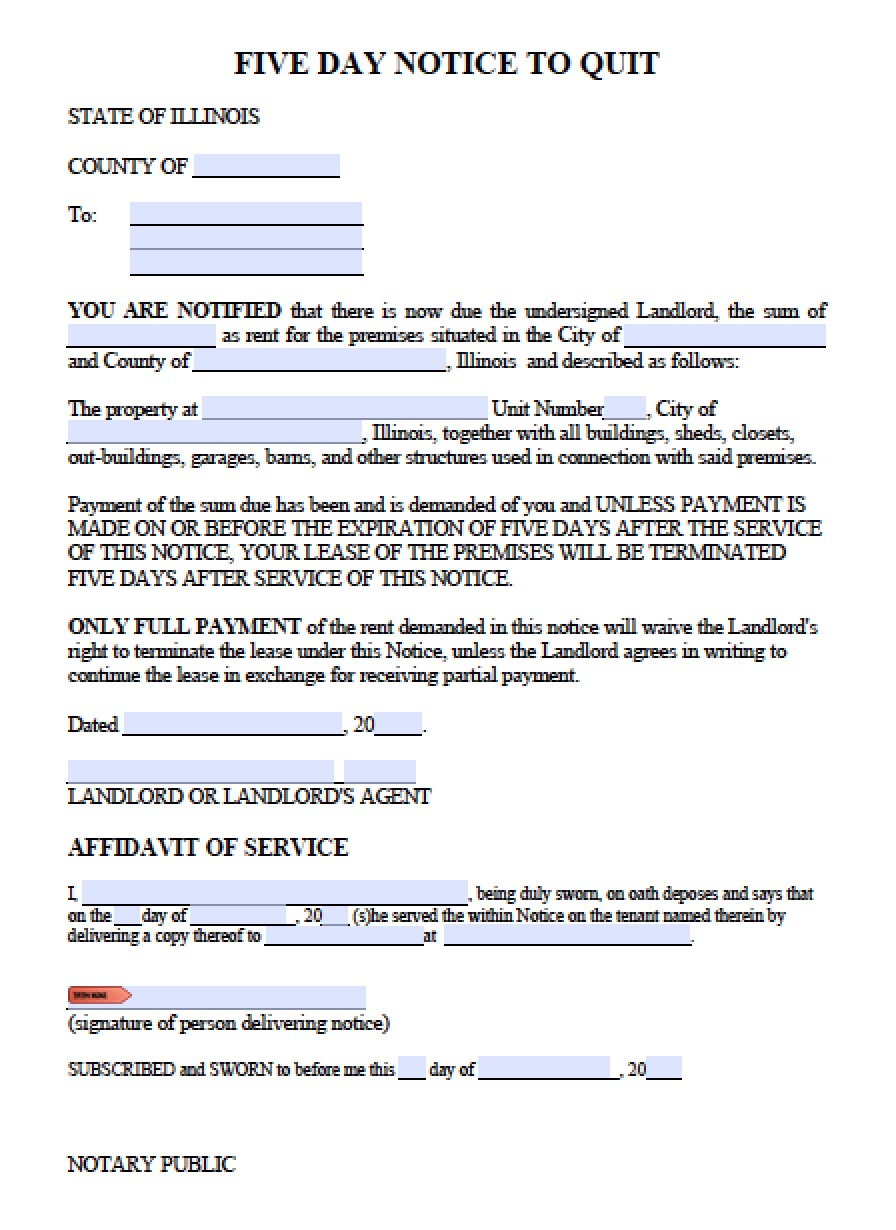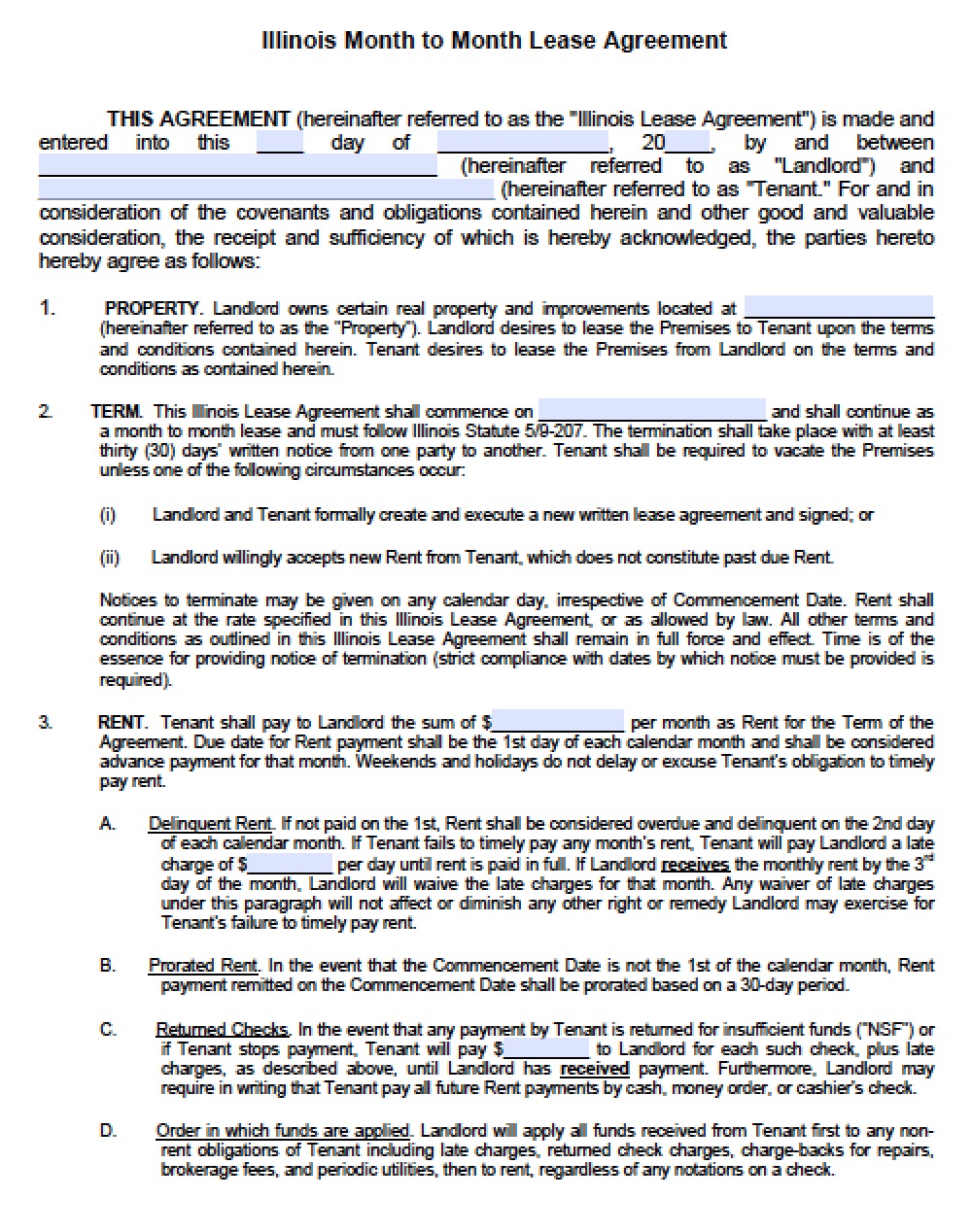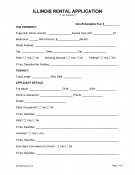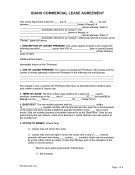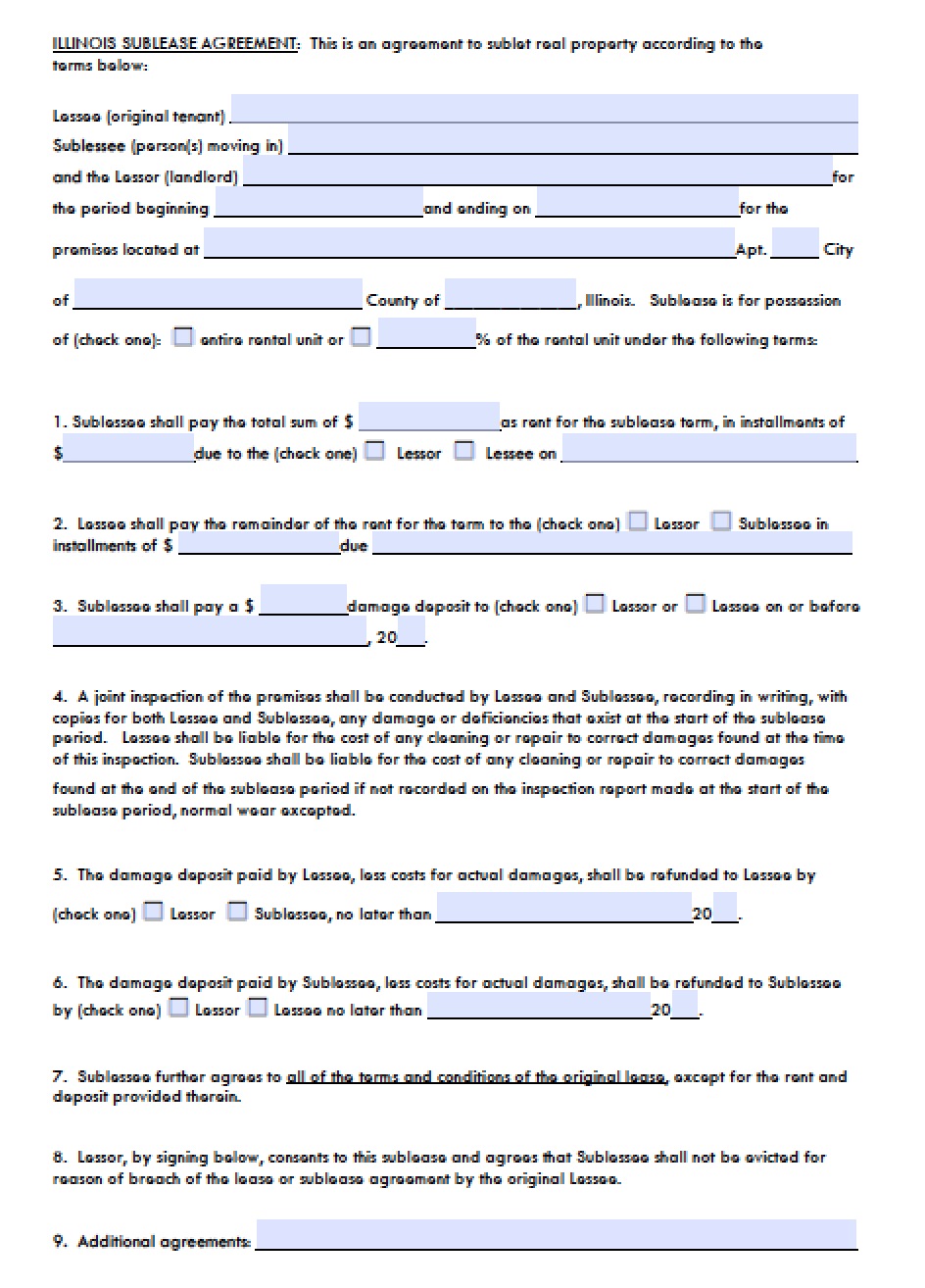Illinois lease agreements let a landlord and tenant come to an agreement over the renting of a property. Rent is commonly due on the 1st of the month although the tenant has an additional five (5) days to pay rent before any late fees may apply (grace period). Prior to signing an agreement, the landlord will commonly require the tenant to complete a rental application.
Illinois Rental Lease Agreement Templates | PDF
Illinois Lease Agreements
The Illinois residential lease agreement outlines the details of a rental agreement between a landlord and tenant. This type of contract requires the tenant to pay their rent on a monthly basis and, unless it is renewed, expires after one (1) year. A rental application is often required from a potential tenant before the lease is signed. A rental application gives the landlord access to the applying tenant’s rental, criminal, employment, and credit history. In addition to the application, the…
The Illinois five (5) day notice to quit allows for a tenant who has not paid rent to have five (5) days to pay up or vacate the premises. If the tenant doesn’t comply by moving out, they can face eviction by the landlord. To evict a noncompliant tenant, the landlord must file a complaint with the court in their jurisdiction. Refer to the Illinois State Bar Association for further information. When is Rent Due? – No statute but should be…
The Illinois month-to-month lease agreement is favored by individuals who are unsure of the duration of their stay at the rental property and seek a lease with no fixed termination date. The lease is structured to expire at the end of every month, allowing the tenant to either renew by paying the next months’ rent. This type of tenant is typically light on possessions and the properties are, not always, but usually furnished. Some landlords may feel as though they…
The Illinois rental application can enable landlords to gain an informative and useful summary of their potential tenants’ credit, rental, criminal, and employment histories. With the results of an application, the landlord can determine if the applying tenant will be a trustworthy and financially responsible individual to work with. The landlord should remember that there are other precautions to take besides a rental application to ensure his or her property will remain covered, such as a security deposit and lease…
An Illinois commercial lease agreement states the conditions by which a retail, industrial, or office tenant agrees to conduct themselves and pay rent to the landlord for the length of the contract. A typical agreement should detail the basic elements which state the fees and bills to be paid by each party concerning items such as electricity, water/sewer, landscaping, etc. Due to the amount of money invested by the landlord and tenant, the term is usually between two (2) and…
An Illinois sublease agreement is typical among individuals looking to lessen the monthly cost of their rent and share their rent and living space with another individual (called the “sublessee”). However, the agreement may also be for the sublessee to rent the entire space from the original tenant (called the “sublessor”). It is recommended that the sublessor inform the landlord of the new sublessee(s) on the property to avoid any confusion and to ensure that the master lease remains valid….
DISCLOSURES
Lead Based Paint Disclosure (Lead Paint Prevention Code) – For housing built before 1978 as they may contain traces of lead-based paint.
Shared Meter (3765 ILCS 740) – If the utility meter that is tied to the tenant’s rental unit is shared, the landlord must state the exact formula on how the bill is calculated.
Rent Concessions (3765 ILCS 730) – Any rent concessions must be stated in the rental contract.
Radon (420 ILCS 46) – In the Radon Awareness Act, all landlords that detect significantly high levels of this gas must inform any and all tenants moving into the residence.
SECURITY DEPOSITS
Maximum – No State maximum. A landlord may charge as much as desired.
Returning (765 ILCS 710/1(a)) – The landlord has thirty (30) days to return the deposit to the tenant. Forty-five (45) days if the tenant disputes any itemized deduction.
LANDLORD’S ACCESS/ENTRY
There is no statute that states the landlord must give notice to the tenant before entering the property for alteration or repair. However, it is recommended to do so with the best intentions of keeping a good landlord-tenant relationship.

